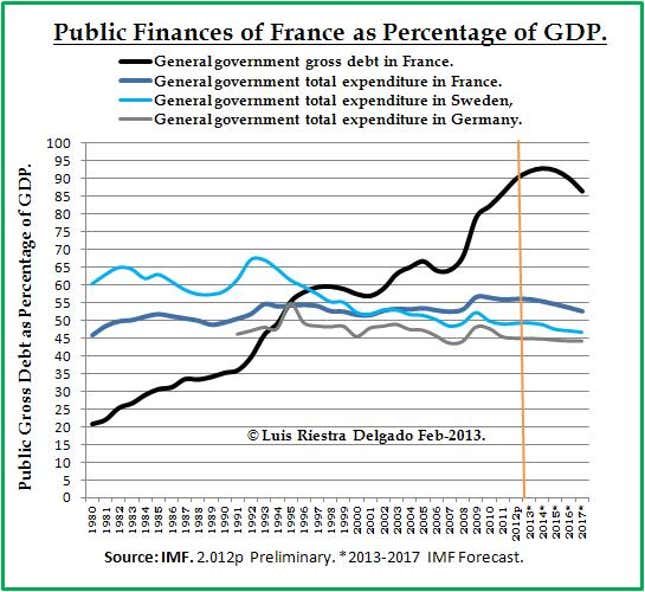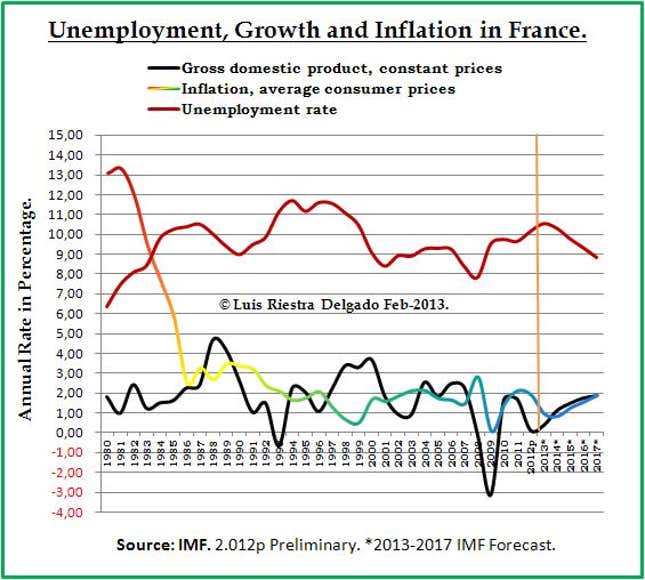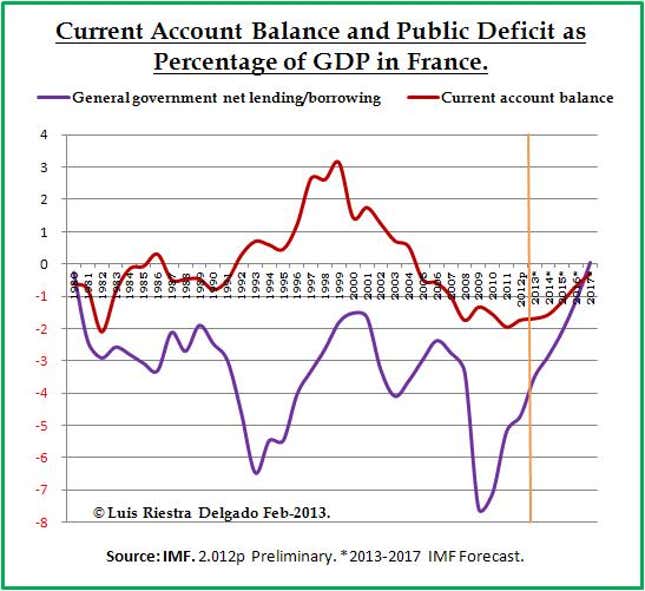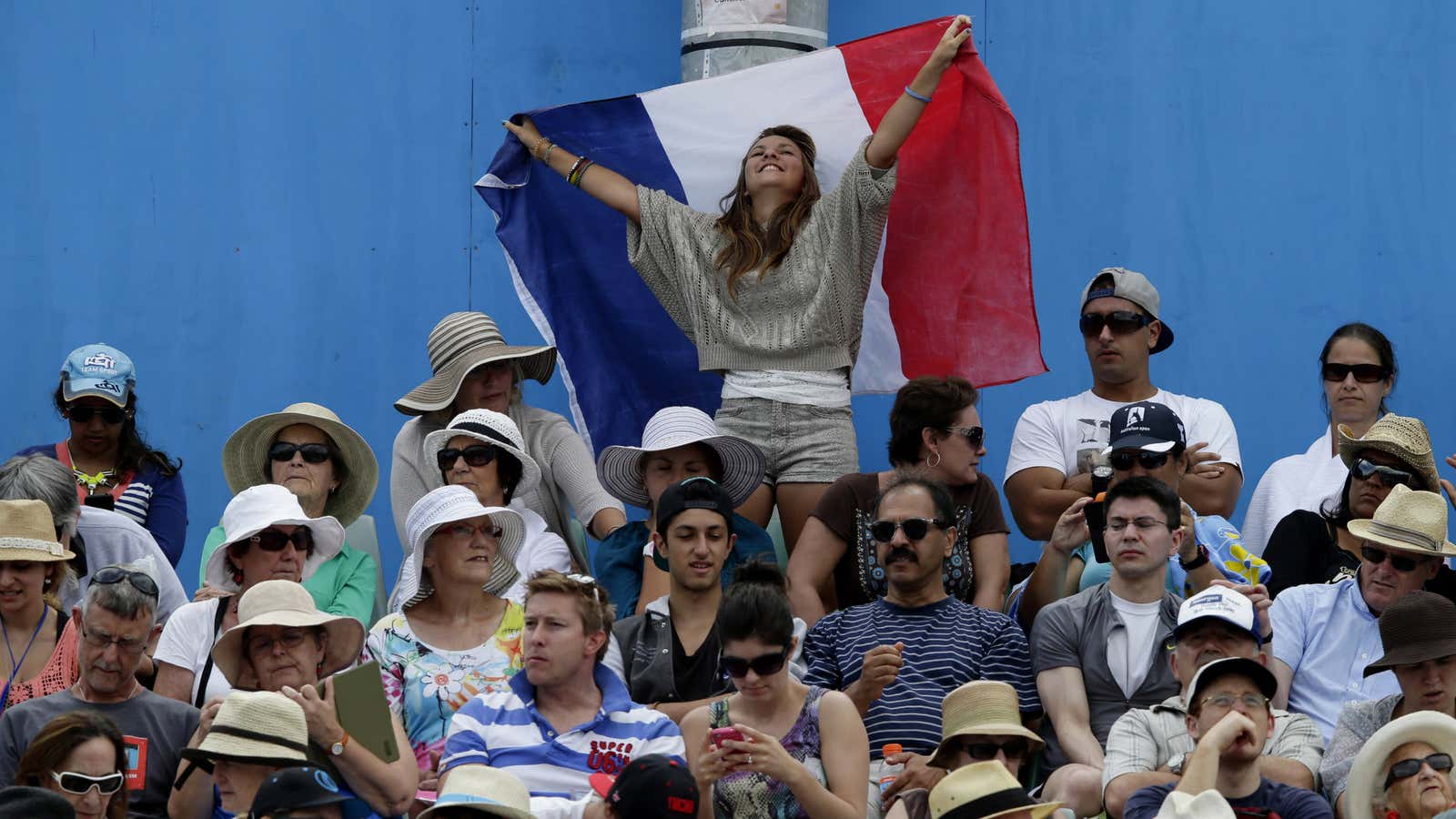The EU talks over the seven-year budget raise the perpetual question of whether the union is sustainable. With the periphery in a structural fiscal crisis, the threat of a UK split and the scandal of EU salaries and benefits, the situation is dire as ever. Meanwhile, governments and citizens from the periphery desperately seeking growth look to the French proposals as an alternative to the German and Nordic philosophy of “doing better with less.” But this search is in vain as the Hollande overture has no solid economic foundation, as the economic situation of his country shows.
The grandeur and the patriarchal state
Deep inside in the minds of the French people is the idea of a nanny state that directs and orients the destiny not only of France and its view of the world, but also of a world led by France, naturellement. In the pursuit of this aim, France has been spending, over the last 30 years, an increasing amount of money as a percentage of GDP that will likely lead to a sovereign debt crisis in the future.

This French model of public management is clearly unsustainable. If you compare France to Sweden or Germany, whose public spending is over 50% of GDP, France is almost 15 years behind in this respect.
I found the forecast of the IMF data shown in the charts, as in the cases of Brazil, Mexico or Turkey, among others, too optimistic. It seems that with the entrance of the woman in black, Madame Christine Lagarde, the IMF has been infected with the French tendency of avoiding reality.
Flying Hollande
French voters have perpetuated their fantasy by electing Hollande, a man who will clearly make France (and the EU) capitulate to his fiscal limits. His idea of increasing the marginal income tax rate to 75% has made it so that even Sarkozy is thinking of moving to London to avoid such madness.
Hollande is confusing austerity with indiscriminate cuts and it’s certainly alarming that this error, with which he won the elections, remains present in his discourse. With a public gross debt close to 90% of GDP, France has crossed the red line in which indebtedness means lower growth, as Carmen M. Reinhardt and Kenneth S. Rogoff demonstrated long ago.

The pursuit of growth with a failed model
Monsieur Hollande wants growth to create jobs, to have a better life, to save the welfare state and to achieve the necessary deleveraging, public and private. But in the particular case of France (and the EU), a change of model is urgent and unavoidable.
Hollande’s decision of pulling back austerity measures and calling for citizens to take responsibility of their finances is simply insane. There is no doubt that the old French model has failed: workers are desperate to keep their jobs as the population ages; there’s a suicide epidemic; social turbulence translates into thousands of torched cars per year (the exact amount is censored); and ethnic integration has become a myth.
A power in directress with a leader in dissociative fugue?
France is anchored in global trade with leading companies in almost every major global sector, but its global position is now at risk due to the dysfunctional model and the bad management of the monetary union and of the EU.

In a very difficult environment, where European firms are focused on exporting and with many French corporations positioned in between German and Italian and Spanish ones, French companies have done a great job reverting the French trade imbalance trend, as shown in the red line of the chart above. Additionally, the French state was consolidating its public accounts without damaging growth until Hollande, in his French (and EU) fugue put these assets at risk.
EU Sustainability
The French idea of making a European super-state is facing the reality of its lack of financial muscle and the inability of Brussels to defend the EU members’ interests. Instead of offering a credible solution combining growth, fiscal austerity and EU efficacy, Hollande comes with more of the same, perhaps expecting that Merkel will lose her next elections on Sept. 22. Then, we could all have a French Union with its unsustainable path of stagnation, confiscatory taxes and over-indebtedness.
